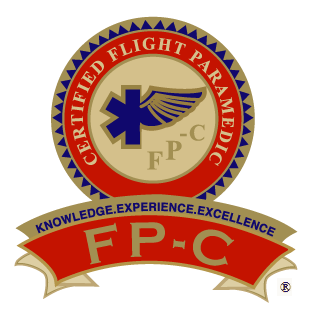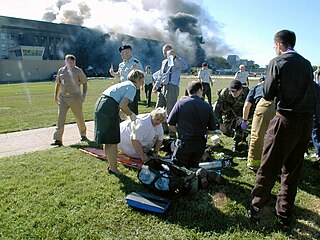Related Research Articles

Medical psychology or medico-psychology is the application of psychological principles to the practice of medicine, primarily drug-oriented, for both physical and mental disorders.

The Løgting is the unicameral parliament of the Faroe Islands, an autonomous territory within the Danish Realm.
The Canadian Medical Association is a national, voluntary association of physicians and medical learners that advocates on national health matters. Its primary mandate is to drive positive change in health care by advocating on key health issues facing doctors and their patients.

Residency or postgraduate training is a stage of graduate medical education. It refers to a qualified physician, veterinarian, dentist, podiatrist (DPM) or pharmacist (PharmD) who practices medicine, veterinary medicine, dentistry, podiatry, or clinical pharmacy, respectively, usually in a hospital or clinic, under the direct or indirect supervision of a senior medical clinician registered in that specialty such as an attending physician or consultant. In many jurisdictions, successful completion of such training is a requirement in order to obtain an unrestricted license to practice medicine, and in particular a license to practice a chosen specialty. In the meantime they practice "on" the license of their supervising physician. An individual engaged in such training may be referred to as a resident, registrar or trainee depending on the jurisdiction. Residency training may be followed by fellowship or sub-specialty training.

The American College of Physicians (ACP) is a Philadelphia-based national organization of internists, who specialize in the diagnosis, treatment, and care of adults. With 161,000 members, ACP is the largest medical-specialty organization and second-largest physician group in the United States, after the American Medical Association. Its flagship journal, the Annals of Internal Medicine, is considered one of the five top medical journals in the United States and Britain.
The Registry of Interpreters for the Deaf, Inc (RID) is a non-profit organization founded on June 16, 1964, and incorporated in 1972, that seeks to uphold standards, ethics, and professionalism for American Sign Language interpreters. RID is currently a membership organization. The organization grants credentials earned by interpreters who have passed assessments for American Sign Language to English and English to American Sign Language interpretation and maintains their certificates by taking continuing education units. RID provides a Certification Maintenance Program (CMP) to certified members in support of skill-enhancing studies. The organization also provides the Ethical Practices System (EPS) for those who want to file grievances against members of RID. The organization also collaborated with the National Association of the Deaf (NAD) to develop the Code of Professional Conduct (CPC). The CPC Standard Practice Papers (SPP) are also available for professional interpreters to reference. RID is headquartered in Alexandria, Virginia.

The Australasian College for Emergency Medicine (ACEM), based in Melbourne Australia, is the primary training body for specialist emergency physicians in Australia and New Zealand. The college is recognised by the Australian Medical Council and Medical Council of New Zealand as such and provides services for approximately 2700 Fellows and 2600 Trainees.

Medical education in Australia includes the educational activities involved in the initial and ongoing training of Medical Practitioners. In Australia, medical education begins in Medical School; upon graduation it is followed by a period of pre-vocational training including Internship and Residency; thereafter, enrolment into a specialist-vocational training program as a Registrar eventually leads to fellowship qualification and recognition as a fully qualified Specialist Medical Practitioner. Medical education in Australia is facilitated by Medical Schools and the Medical Specialty Colleges, and is regulated by the Australian Medical Council (AMC) and Australian Health Practitioner Regulation Agency (AHPRA) of which includes the Medical Board of Australia where medical practitioners are registered nationally.

The Royal Australian College of General Practitioners (RACGP) is the professional body for general practitioners (GPs) in Australia. The RACGP is responsible for maintaining standards for quality clinical practice, education and training, and research in Australian general practice. The RACGP represents over 40,000 members across metropolitan, urban, rural and remote Australia.
Established in 1933, the American Board of Medical Specialties (ABMS) is a non-profit organization which represent 24 broad areas of specialty medicine. ABMS is the largest physician-led specialty certification organization in the United States.

A certified flight paramedic (FP-C) is a person who has met the advanced certification requirements for flight paramedics established for this designation by the International Board of Specialty Certification (IBSC), a not-for-profit organization responsible for the administration and development of specialty certification exams for critical care professionals. The FP-C exam was the first specialty paramedic certification offered by the Board for Critical Care Transport Paramedic Certification in 2000. This certification is designed for experienced paramedics who have demonstrated advanced knowledge of critical care medicine.

The Oklahoma State Department of Education is the state education agency of the State of Oklahoma charged with determining the policies and directing the administration and supervision of the public school system of Oklahoma. The State Board of Education, the governing body of the Department, is composed of the Oklahoma State Superintendent of Public Instruction and six members appointed by the Governor of Oklahoma with the approval of the Oklahoma Senate. The State Superintendent, in addition to serving as chair of the Board, serves as the chief executive officer of the Department and is elected by the voters of Oklahoma every four years.
Board certification is the process by which a physician or other professional demonstrates a mastery of advanced knowledge and skills through written, practical, or simulator-based testing.

Disaster medicine is the area of medical specialization serving the dual areas of providing health care to disaster survivors and providing medically related disaster preparation, disaster planning, disaster response and disaster recovery leadership throughout the disaster life cycle. Disaster medicine specialists provide insight, guidance and expertise on the principles and practice of medicine both in the disaster impact area and healthcare evacuation receiving facilities to emergency management professionals, hospitals, healthcare facilities, communities and governments. The disaster medicine specialist is the liaison between and partner to the medical contingency planner, the emergency management professional, the incident command system, government and policy makers.
The American Orthopaedic Society for Sports Medicine (AOSSM) promotes sports medicine education, research, communication, and fellowship and includes national and international orthopaedic sports medicine leaders. The Society works closely with many other sports medicine specialists, including athletic trainers, physical therapists, family physicians, and others to improve the identification, prevention, treatment, and rehabilitation of sports injuries. Formed in 1972 as a forum for education and research with 100 members, the AOSSM today has to more than 2,000 members.
The American Board of Nuclear Medicine (ABNM) certifies physicians as specialists in the practice of nuclear medicine. Diplomates of the ABNM are called nuclear medicine physicians. The ABNM is one of the 24 member boards of the American Board of Medical Specialties (ABMS).
The Ministry of Education (1944-1964) was a central government department governed by the Minister of Education, with responsibility in England and Wales for:
- Promoting the education of people;
- Developing educational institutions;
- Developing policy to provide a comprehensive educational service;
- Securing the effective execution of the education policy by local education authorities
The Independent Payment Advisory Board, or IPAB, was to be a fifteen-member United States Government agency created in 2010 by sections 3403 and 10320 of the Patient Protection and Affordable Care Act which was to have the explicit task of achieving specified savings in Medicare without affecting coverage or quality. Under previous and current law, changes to Medicare payment rates and program rules are recommended by MedPAC but require an act of Congress to take effect. The system creating IPAB granted IPAB the authority to make changes to the Medicare program with the Congress being given the power to overrule the agency's decisions through supermajority vote. The Bipartisan Budget Act of 2018 repealed IPAB before it could take effect.
The National Board of Trial Advocacy (NBTA) is a non-profit board certification organization in the United States which administers eight national board certification programs for attorneys in Civil Trial Law, Criminal Trial Law, Truck Accident Law, Family Trial Law, Civil Practice Advocacy, Social Security Disability Law, Complex Litigation, and Patent Litigation. Each practice area is managed by a specialty program commission of five leading practitioners. To become board-certified, an attorney must meet substantial professional requirements and undergo a peer review process. There are currently close to 2,000 attorneys who are certified by the NBTA. The organization is led by board of directors of noted trial lawyers, law professors, and judges.
Credentialing is the process of establishing the qualifications of licensed medical professionals and assessing their background and legitimacy.